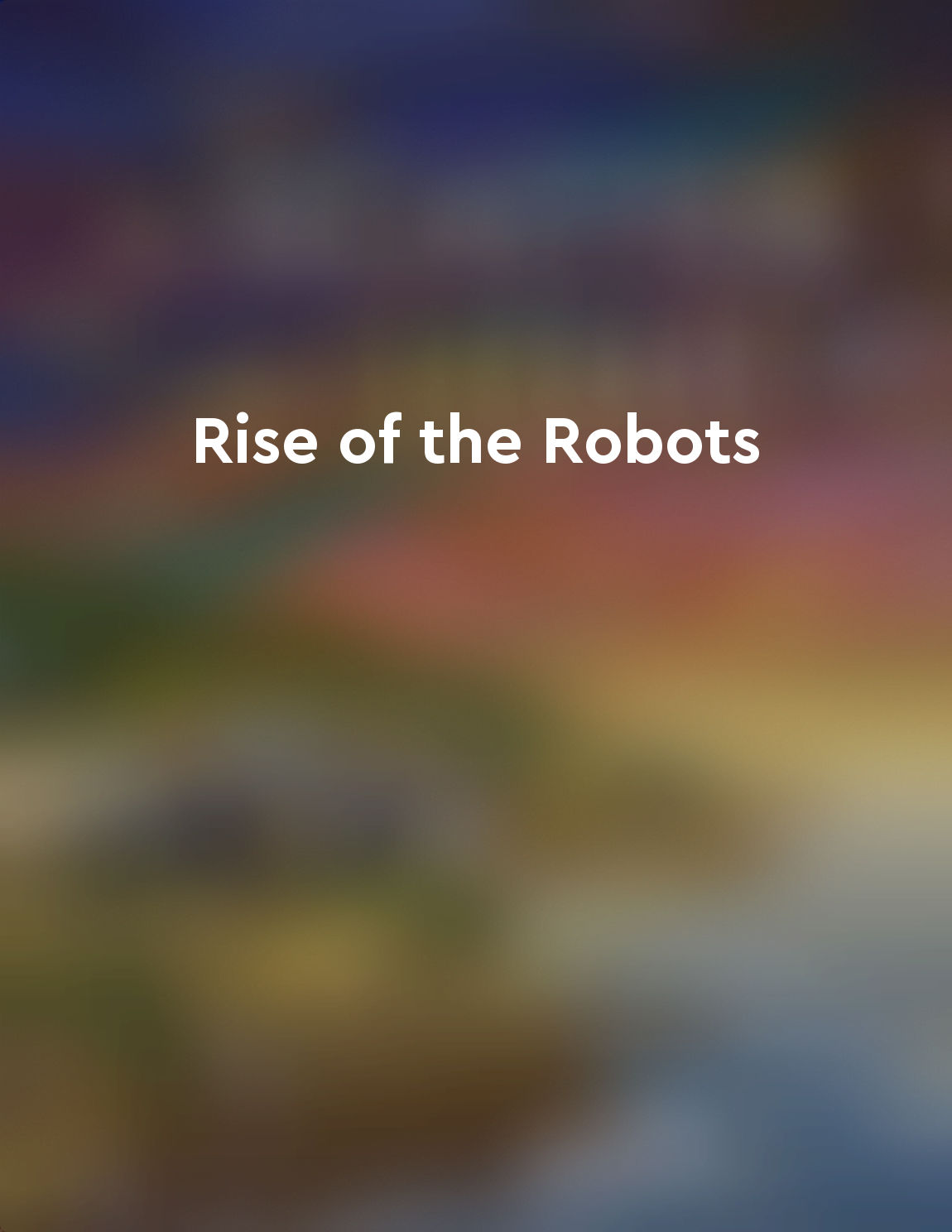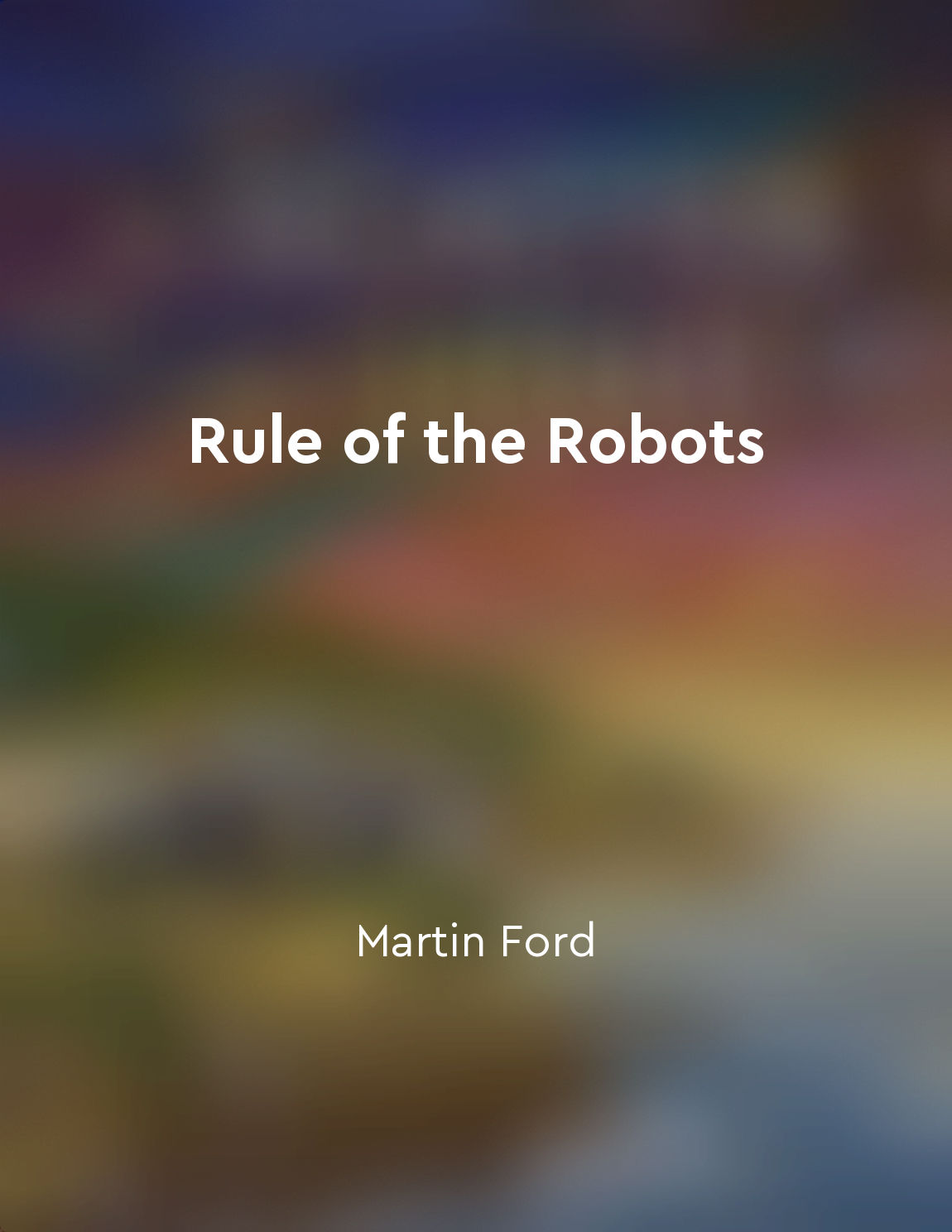Audio available in app
The future of work will be heavily influenced by AI from "summary" of The Economics of Artificial Intelligence by Ajay Agrawal,Joshua Gans,Avi Goldfarb
A key idea that emerges in discussions around the impact of artificial intelligence on the economy is the profound influence it will have on the future of work. AI technologies are rapidly evolving, enabling machines to perform tasks that were once the exclusive domain of humans. This shift is expected to disrupt traditional job markets and require workers to adapt to new roles and skill sets. One of the central arguments put forth is that AI will not simply replace human workers, but rather augment their capabilities. Automation will eliminate some tasks while creating new opportunities for collaboration between humans and machines. This dynamic has the potential to transform industries across the board, from manufacturing to healthcare to finance. As AI becomes more integrated into the workforce, the nature of work itself is likely to undergo significant changes. Routine, repetitive tasks are most susceptible to automation, while jobs that require creativity, critical thinking, and emotional intelligence are less likely to be automated. This shift will necessitate a reevaluation of how we educate and train workers to thrive in this new economic landscape. Furthermore, the deployment of AI in the workplace will raise ethical and social considerations that must be addressed. Issues such as job displacement, income inequality, and algorithmic bias will require thoughtful policy responses to ensure that the benefits of AI are equitably distributed across society.- The future of work in the age of AI is a complex and multifaceted issue that demands careful consideration and proactive planning. By understanding the potential implications of AI on the economy and society, we can better prepare for the opportunities and challenges that lie ahead.
Similar Posts
Opportunities for crosscultural exchange and understanding
The increasing interconnectedness of the world in 2030 means that there are more opportunities for people from different cultur...

The choice is clear: program or be programmed by others
The digital age has brought a fundamental shift in power dynamics. Those who understand how to program the platforms and techno...

The Big Nine have the responsibility to uphold ethical standards
The Big Nine — Google, Microsoft, Apple, Amazon, Facebook, IBM, Baidu, Alibaba, and Tencent — are the world's most influential ...
Human values shape AI's impact on society
Human values are at the core of artificial intelligence's impact on society. The decisions made by AI systems are heavily influ...
The benefits of technological progress are not evenly distributed
The digital revolution has brought about immense technological progress in recent years. We are living in a time of unprecedent...

Automation is eliminating jobs at an alarming rate
As technology continues to advance at a rapid pace, the impact on the job market is becoming increasingly apparent. Automation,...

The rise of robots is causing concern about the future of employment
The pace of technological progress has accelerated dramatically in recent years, bringing with it the rise of robots and automa...

Businesses must balance the benefits of automation with the impact on workers
In today's rapidly evolving technological landscape, businesses are increasingly turning to automation to drive efficiency and ...
Artificial intelligence is transforming industries
Artificial intelligence is the invisible hand that guides much of what we do today, reaching into industries as varied as finan...

Automation has the potential to improve efficiency and productivity
In a world where automation is becoming increasingly prevalent, one cannot overlook the potential benefits it can bring to busi...

